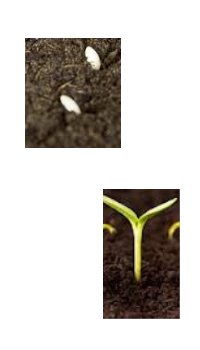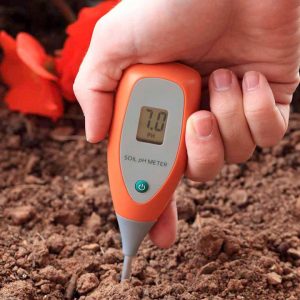How to test your soil to help your seeds to grow

Soil ph levels and seeds
There are key 3 items that will help your seeds to germinate and grow :
- Sunlight and Temperature
- Water
- Your Soil
We will take each one and provide advice on how to test your soil so you will have the best way to get your seeds to germinate.
Your soils pH level..
What you ‘feed’ your seeds will affect how quickly they grow, and how successful you will be.
Yes water is obviously important but so is the pH level of your soil. There are 2 ways to germinate your seeds –
- either in a pot, growing tray, etc
- or straight into the garden or your allotment.
The advantage of a growing tray is that you can buy (or use) soil or potting compost containing exactly the right ingredients or pH level.
Once you know how to test your soil the key is to focus on the 3 main pH levels :
- Acid with a pH between 1 and 7, for example peaty soil
- Neutral with pH of exactly 7, for example some clay soils
- Alkaline with a pH between 7 and 14, for example chalky soil
Yes, plants need the right level of pH to grow, most will prefer a pH of 6.5 to 7 – the point where nutrients are most easily available
But some will prefer an acid soil (such as rhododendrons) or alkaline (such as saxifrages)
What pH level do seeds prefer ?
In 1990 there was a study done by Candice A. Shoemaker and William H. Carlson from the Department of Horticulture, Michigan State University, East Lansing to identify exactly this.

They identified that most seeds germinated best at pH 5.5 to 7.5. Linked to this if you give them water than distilled water will be ph neutral.
How do you test pH ?
The easiest way is to use an instant pH soil reader – so you know how to test your soil – lots available on Amazon
It will give you an instant digital reading from 0 to 9 so you will not only help you choose the best plants for your soil – it will also identify the best places for your seeds.
.
